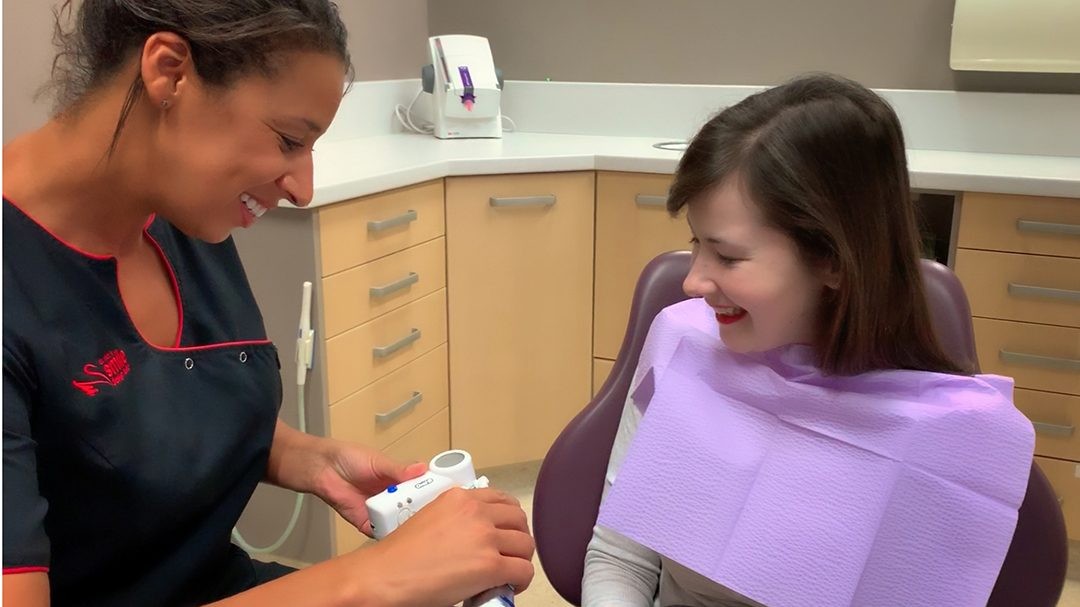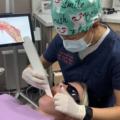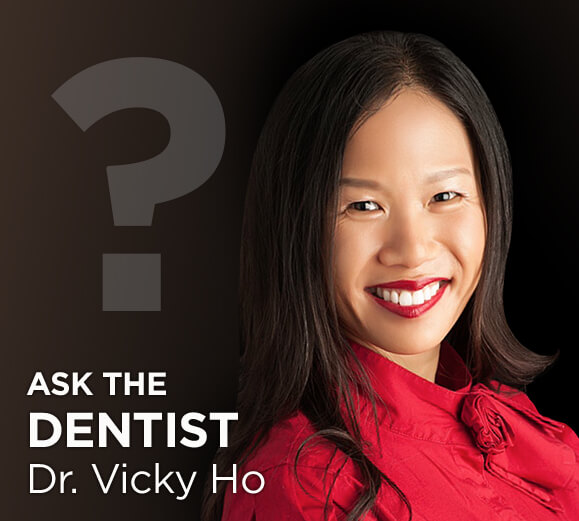When it comes to dental implants, with modern dentistry there are a wide range of options available. One of the biggest decisions that people have to make is whether to opt for full mouth or individual dental implants.
Both treatments offer their own distinct advantages and disadvantages, so deciding which one is right for you can be a difficult decision. In this article, we will discuss the pros and cons of each option in detail so that you can make an informed choice about what’s best for your needs.
First up is full mouth dental implants. This involves having several teeth replaced at once with artificial ones crafted from titanium rods inserted into the jawbone by a dentist. They look and feel like natural teeth and they provide more stability than traditional dentures or bridges. On the downside, full mouth implants require major surgery and they tend to cost significantly more than other implant procedures.
Individual dental implants also involve inserting titanium rods into the jawbone but these are only used when replacing just one or two teeth rather than an entire set as with full mouth implants. The benefit here is that costs are typically lower since fewer materials need to be purchased and less time spent on planning and installation. However, individual implants may not be suitable if multiple adjacent teeth need to be replaced due to potential instability issues.
Procedure For Full Mouth Vs Individual Implants
When it comes to dental implant procedures, the full mouth approach is quite different from traditional individual implants. With a full mouth procedure, an entire arch of teeth – up to 16 implants – will be placed in one go. This means fewer visits to the dentist and less time spent undergoing treatment.
On the other hand, with traditional implants, only one tooth at a time can be replaced. Therefore more appointments are necessary and implanting replacement teeth one by one takes longer than just placing an arch of replacements.
Both approaches have their benefits and drawbacks that should be carefully considered before making a decision about which option best suits your needs.
Pros Of Full Mouth Implants
Full mouth implants offer a range of advantages over individual implants. One significant benefit is their ability to support implant retained dentures and permanent dentures, while also providing superior stability compared to traditional removable dentures. Additionally, full mouth implants can provide an improved level of comfort for patients who may have difficulty wearing traditional dentures due to appearance, dental health issues or bone loss.
The other major advantage of full mouth implants is that they enable more efficient tooth replacement than individual implants alone. Full mouth implant supported dentures are much easier to clean than conventional ones, as the entire arch of teeth can be removed from the mouth in one piece instead of individually. This makes them far less time consuming and expensive when it comes to ongoing hygiene and maintenance costs associated with regular cleaning and check-ups.
Overall, full mouth implants represent a great option for those seeking a reliable solution for replacing missing teeth or restoring existing ones with better stability and aesthetics than what traditional solutions offer. They can help improve oral health by providing greater support for healthy gums and bones beneath them, while reducing discomfort experienced through ill-fitting removable prostheses.
Pros Of Individual Implants
Individual dental implants provide a plethora of advantages that make them the clear front-runner when it comes to tooth replacement. It’s no exaggeration to say they revolutionize the patient experience! For starters, individual implants are inserted directly into the jawbone and have proven over time to be highly successful in preventing bone loss. This is great news for those who don’t want to worry about their teeth shifting or deteriorating with age.
Since each implant fits snugly into its designated spot in your jawbone, you’ll enjoy natural looking results without any slipping or sliding around. You won’t even need adhesives like some people do with dentures! All in all, individual dental implants present an extremely attractive solution for replacing missing teeth.
Cons Of Full Mouth Implants
Full mouth implants are a major investment, and they can cost much more than individual dental implants. The ball attachment dentures that typically accompany full mouth implants can also cause discomfort for some people as the false tooth is attached directly to the gums without any cushioning between them. Furthermore, these attachments can be difficult to clean around, leading to plaque buildup and an increased risk of gum disease or infection.
In addition, because full mouth implants involve replacing all teeth in one procedure, there’s a greater chance of complications compared with opting for multiple surgeries for individual dental implants. This could lead to longer recovery times or even failure of the implant if not performed correctly by an experienced professional. For this reason, it’s important to research your options thoroughly before making a decision about which type of implant is right for you.
Cons Of Individual Implants
Individual dental implants have become increasingly popular in recent years due to their convenience and natural feel. However, the process of getting individual implants is much more complex than full mouth restoration. The procedure for each implant requires a surgical operation that takes months to complete before it can be used or function like a normal tooth. This can be a major disadvantage for those looking for quick results as they must wait patiently throughout the entire process.
Not only does this require multiple surgeries, but it also entails higher costs compared to other forms of denture replacement such as removable dentures or arch dentures.
Furthermore, there are risks associated with any type of dental implant surgery so patients should always consult with a qualified dentist prior to undertaking the treatment.
- Patients may need several procedures over an extended period of time
- More expensive option compared to removable/arch dentures
- Risk associated with any type of dental implant surgery
Unlike full mouth restorations which replace all missing teeth at once, individual implants take longer and involve additional visits to the dentist’s office after placement to ensure proper healing and functionality of the new teeth.
Also, some individuals may not be able to get individual implants due to bone density requirements needed for successful implantation. Ultimately, these factors must be taken into consideration when deciding between full mouth versus individual dental implants since both have advantages and disadvantages depending on one’s needs and budget constraints.
Oral Health Considerations
Moving on from the disadvantages of individual implants, it is important to consider the oral health benefits when weighing up a full mouth versus individual dental implant procedure. In comparison to traditional dentures, an implant retained denture can offer improved stability and greater comfort for those who have lost all of their natural teeth. This means that not only will there be more support while eating and speaking but also less potential damage to surrounding gums and jawbones due to ill-fitting dentures.
Furthermore, with a full set of implants in place, the adjacent teeth are protected against further decay or infection since they do not need additional bridgework or crowns. Ultimately, this makes them a better choice than individual implants if long term oral health is taken into account.
Cost Comparison
The cost of full mouth vs individual dental implants can be compared to a seesaw, with one side up and the other down. On one hand, full-mouth implant treatment is more expensive than traditional dentures or removable denture bridges that are used to replace missing teeth. However, on the flipside, individual implants have longer lasting results than those treatments and therefore may be worth the extra cost in the long run.
When considering these costs it is important to factor in how much time you will save by not having to visit your dentist for regular adjustments or maintenance as would be required for traditional and removable dentures.
Furthermore, if you opt for individual implants rather than replacing all of your teeth at once this may be a more affordable option from being able to spread out payments over multiple visits instead of making larger upfront payment.
Ultimately, when comparing costs between full mouth and individual dental implants it is important to keep future needs in mind so that you can make an informed decision about which option best meets both your current and potential future needs.
Timeframe For Completion
Moving on from cost comparison, let’s discuss the timeframe for completion when considering full mouth vs individual implant options.
Traditional implant placement requires a few months of healing before the prosthetic dental replacement can be placed. This is due to the fact that the bone must fuse with the metal post inserted in the jawbone. On average, this process takes about three to six months per implant.
On the other hand, a mouth implant procedure may require less time than traditional implants because it only involves one surgery as opposed to several surgeries if done individually. Depending on how many teeth need to be replaced and what type of implant is being used, it usually takes two weeks until all of your permanent teeth are ready to go.
Additionally, since there is no waiting period between each tooth being implanted, you could potentially have a full set of new teeth within just a few days or even hours depending on what kind of dental replacement option you choose!
Pain And Discomfort Level
When considering the pain and discomfort that comes with full mouth vs individual dental implants, there is no clear-cut answer. It depends on the patient’s overall health and how their body reacts to the procedure. At Smile Design Studio we strive to make sure our patients are as comfortable as possible during every step of treatment.
Full mouth dental implants require a more extensive surgery than individual replacements do, so it stands to reason that they may cause more pain and discomfort than just one or two implants would.
However, for those who have experienced significant tooth loss due to disease or injury, full mouth implants can be the more effecting of the tooth replacement options for replacing all your teeth at once, rather than having multiple surgeries over time. This means fewer follow up appointments and less hassle in the long run. Here is a quick list of pros and cons regarding pain and discomfort associated with both procedures:
- Full Mouth Implants: Pros – One surgery instead of multiple; Cons – More intense recovery period
- Individual Implants: Pros – Less intensive recovery period; Cons – Multiple surgical visits required
In terms of managing post-op pain and discomfort levels, many dentists recommend taking ibuprofen or acetaminophen while healing from any kind of implant placement procedure. Along with this advice though, always be sure to consult your dentist before deciding which type of artificial tooth replacement works best for you at Smile Design Studio
Durability And Maintenance Requirements
When it comes to durability and maintenance requirements, full mouth dental implants and individual dental implants offer different benefits. Full mouth dental implants require less upkeep than traditional porcelain veneers because they can’t stain or chip like the latter. This makes them a great option for those who want a permanent solution that lasts longer without needing frequent checkups at their dentist’s office. However, these treatments are more expensive upfront and require additional surgery if any repair is needed down the line.
On the other hand, individual dental implants may be more suitable for those with limited budgets or whose health condition doesn’t allow for extra surgery involved in full mouth implants. These treatments come with an added advantage of being cheaper than full-mouth replacements yet still offering significant protection against tooth decay and other oral ailments when regularly maintained through regular brushing and flossing habits as well as appointments online with your trusted dentist every 6 months. Additionally, individual implants also give patients greater flexibility compared to full-mouth solutions since repairs can be done on one single implant rather than replacing all teeth simultaneously.
Overall, each type of treatment has its own advantages depending on factors such as financial means, existing medical conditions and lifestyle preferences. It’s important to do research beforehand to make sure you choose the best option for you based on your specific needs and expectations.
Conclusion
Overall, getting either full mouth or individual dental implants is a personal decision that should be made with your dentist’s advice. It’s important to weigh the pros and cons of both procedures as well as look into cost before making any decisions.
The success rate for both implant procedures is generally high, but there are risks involved in both cases. Both require some dietary restrictions after having them placed which can take some time to adjust to. The longevity of each type of implant varies, so it’s best to discuss this with your dentist prior to committing.
Metaphorically speaking, when deciding between the two types of implants it’s like choosing between apples and oranges; they differ greatly from one another and ultimately you must pick which will work best for you personally. Ultimately, regardless of what choice you make – whether full mouth or individual implants – you’ll receive a boost in confidence knowing that your smile has a more natural appearance! Book a consultation today at Smile Design Studio and let us help you achieve your dream smile!









